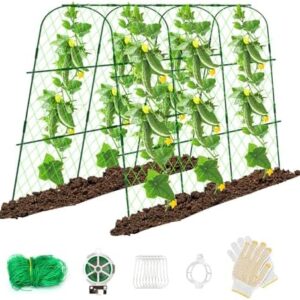As we look towards the future of agriculture, advancements in plant growth science are set to revolutionize the way we produce food. The traditional methods of farming that have sustained us for generations are facing challenges like never before – from climate change and diminishing resources to a growing global population.
But fear not, for science is here to save the day! Researchers and innovators all over the world are working tirelessly to develop new technologies and techniques that promise to increase crop yields, improve resistance to pests and diseases, and reduce the environmental impact of farming. In this article, we will explore some of the exciting advancements in plant growth science that are shaping the future of agriculture.
One of the most promising areas of research in plant growth science is gene editing. Scientists have developed tools like CRISPR-Cas9, which allow them to precisely modify the DNA of plants to enhance desirable traits such as yield, nutritional content, and resistance to pests and diseases. This technology has the potential to revolutionize agriculture by creating crops that are more resilient and productive, helping to ensure food security for a growing global population.
Another exciting development in plant growth science is the use of biostimulants. These are substances that can enhance plant growth and development by improving nutrient uptake, increasing tolerance to environmental stresses, and boosting natural defense mechanisms. Biostimulants can be derived from a variety of sources, including seaweed, beneficial microbes, and plant extracts. By incorporating these products into farming practices, growers can improve crop performance and reduce the need for synthetic inputs like fertilizers and pesticides.
Precision agriculture is another key area of innovation in plant growth science. This involves the use of advanced technologies such as drones, sensors, and GPS to monitor and manage crops with a high degree of accuracy. By collecting data on factors like soil health, moisture levels, and pest infestations, farmers can make informed decisions about when and where to apply inputs, optimizing resource use and minimizing environmental impact. Precision agriculture also enables farmers to customize their growing practices to suit the specific needs of individual plants, leading to higher yields and better crop quality.
Vertical farming is a futuristic concept that is quickly becoming a reality. This method of growing crops involves stacking them in vertical layers, typically in controlled environment facilities like greenhouses or warehouses. Vertical farming offers a number of advantages over traditional agriculture, including increased yields, reduced water and land use, and the ability to grow crops year-round in any location. By harnessing technologies like LED lighting, hydroponics, and automated systems, vertical farms are able to produce fresh, healthy food in a highly efficient and sustainable manner.
In addition to these advancements, plant growth science is also exploring the potential of biotechnology to develop novel plant-based products with a range of applications. For example, researchers are investigating the use of plant-derived proteins as sustainable alternatives to animal products like meat and dairy. By engineering plants to produce proteins with the same taste and nutritional profile as traditional animal products, scientists hope to reduce the environmental impact of food production and provide consumers with more sustainable choices.
As we look ahead to the future of agriculture, it is clear that plant growth science will play a crucial role in shaping the way we feed ourselves in a rapidly changing world. By harnessing the power of gene editing, biostimulants, precision agriculture, vertical farming, and biotechnology, we can create a more sustainable and resilient food system that meets the needs of both people and the planet.
So let’s embrace these advancements in plant growth science and work together to build a brighter future for agriculture. By supporting research and innovation in this field, we can ensure that our food production systems are able to thrive in the face of ongoing challenges and continue to nourish and sustain us for generations to come. The future of agriculture is ripe with possibilities – let’s seize the opportunity to cultivate a better world for all.






